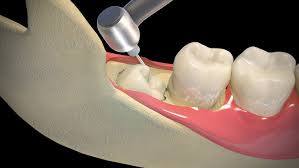What to Expect from Therapy: A Guide to Professional Relationship Support

Every relationship experiences challenges, whether it’s frequent arguments, declining intimacy, or difficulty balancing personal and shared responsibilities. These struggles are normal, but when they persist, they can affect emotional connection, trust, and long-term happiness. That’s where professional therapy comes in—not as a sign of failure but as a proactive step toward building stronger, healthier relationships.
Relationship therapy offers structured support, guided by trained professionals who specialize in understanding human emotions, communication patterns, and intimacy dynamics. Whether through couples counseling, sex therapy, or guidance from the best sexologist doctors in Pune, therapy can provide tools to help you and your partner reconnect and grow together.
Why Consider Therapy for Relationship Support?
Relationships are one of the most rewarding aspects of life, but they also require effort, patience, and adaptability. Even the healthiest partnerships can experience strain when faced with day-to-day stressors.
Relationships Are Complex
Modern life places couples under multiple pressures—demanding work schedules, financial responsibilities, family expectations, and even personal mental health challenges. These stressors can quietly influence how couples communicate, spend time together, and express affection. Over time, small misunderstandings can snowball into bigger conflicts, leading to emotional distance or intimacy concerns.
What’s important to understand is that most relationship challenges aren’t caused by one major event, but by many small, unresolved issues building up over time. This is where therapy becomes valuable—it provides couples with the tools and perspective to address problems early, before they become overwhelming.
It’s About Prevention, Not Just Crisis
A common misconception is that therapy is a “last resort” for couples on the verge of breaking up. In reality, therapy is just as effective when things are relatively stable but need fine-tuning. Think of it as preventive care—similar to going to the gym or eating healthy to avoid health problems.
Through therapy, couples learn essential skills such as constructive conflict resolution, healthy emotional expression, and ways to maintain intimacy despite busy or stressful lives. By addressing concerns proactively, partners often strengthen their bond and develop resilience to handle future challenges better. Rather than waiting until resentment builds or communication breaks down entirely, therapy allows couples to nurture their relationship and invest in long-term happiness.
What Happens in Therapy?
1. Initial Assessment and Goal Setting
Most therapy begins with an assessment session where the therapist learns about your relationship history, current challenges, and what you hope to achieve. You’ll discuss things like:
- What brings you to therapy now?
- How do you currently handle disagreements?
- What does a “successful” relationship look like to you?
From here, the therapist works with you to set realistic goals, whether that’s improving communication, restoring trust, or addressing sexual health concerns.
2. Creating a Safe, Neutral Space
Therapy offers a confidential, judgment-free space for open and honest conversations. Couples often find it easier to express concerns in therapy because there’s a neutral third party present to guide discussions and prevent them from escalating into arguments.
3. Learning Communication and Conflict Resolution Skills
A common focus of therapy is teaching couples how to listen actively, communicate clearly, and resolve disagreements without blame or defensiveness. These are skills that extend beyond the therapy room and benefit every aspect of life.
4. Addressing Emotional Disconnect
Emotional intimacy is just as important as physical intimacy. Therapy helps couples rebuild emotional closeness through exercises that foster empathy, shared values, and mutual appreciation.
5. Support for Sexual Health and Intimacy
For many couples, intimacy issues are a major source of stress. These might include mismatched sexual desire, performance anxiety, or medical concerns like erectile dysfunction. In such cases, collaboration with specialists, including the best sexologist doctors in Pune, can provide comprehensive solutions addressing both emotional and physical aspects of intimacy.
6. Building Long-Term Relationship Habits
Therapy isn’t about quick fixes. You’ll work on developing healthy habits, like weekly check-ins or agreed-upon conflict strategies, that help maintain progress even after sessions end.
Types of Therapy for Couples
Couples Therapy
Focuses on improving the relationship as a whole, addressing communication, trust, and emotional closeness.
Sex Therapy
Specializes in addressing intimacy issues, from low libido and mismatched sexual expectations to overcoming the impact of past trauma on sexual connection.
Individual Therapy
Sometimes one partner’s stress, mental health, or personal history affects the relationship. Individual sessions can support personal growth that benefits the couple as a whole.
Myths About Relationship Therapy
“Therapy Means We’re Failing”
In reality, therapy is an investment in your relationship’s future, much like regular health checkups prevent illness.
“The Therapist Will Take Sides”
Professional therapists are neutral facilitators who work to understand both perspectives and help couples find solutions, not assign blame.
“Therapy Will Instantly Fix Everything”
Change takes time, effort, and willingness from both partners. Therapy provides tools and support, but progress depends on consistent practice and commitment.
The Benefits of Seeking Professional Support
- Improved Communication: Learn to express needs and emotions more effectively.
- Conflict Resolution: Handle disagreements constructively without emotional harm.
- Rebuilt Trust and Intimacy: Restore emotional and physical closeness.
- Personal Growth: Understand your own patterns and how they influence the relationship.
Platforms like Allo Health, India’s no. 1 sexual health provider, simplify this journey by providing discreet, expert-led counseling and access to sexual health professionals, ensuring couples get complete support for both emotional and physical relationship needs.
Why Start Therapy Early?
Many couples wait until arguments feel unmanageable or emotional disconnect feels permanent before seeking therapy. However, early intervention often leads to quicker and more sustainable results. Addressing small issues early can prevent resentment from building up and give couples tools to navigate future challenges more smoothly.
Tips for Making the Most of Relationship Therapy
- Be Honest and Open: Share your thoughts, even the uncomfortable ones, to get the most benefit.
- Stay Committed: Attend sessions regularly and complete suggested exercises.
- Focus on Solutions, Not Blame: Therapy works best when both partners focus on growth instead of pointing fingers.
- Be Patient: Progress takes time, and setbacks are part of the learning process.
Final Thoughts
Relationship challenges are a normal part of life, but they don’t have to lead to disconnection or conflict. Therapy offers the tools and safe space needed to improve communication, restore trust, and rekindle intimacy. Whether it’s through couples counseling, sex therapy, or expert advice from the best sexologist doctors in Pune, professional relationship support can be transformative.
With platforms like Allo Health, India’s no. 1 sexual health provider, couples can access discreet, compassionate guidance tailored to their unique needs, ensuring they have the best possible chance at building strong, fulfilling, and lasting relationships.



